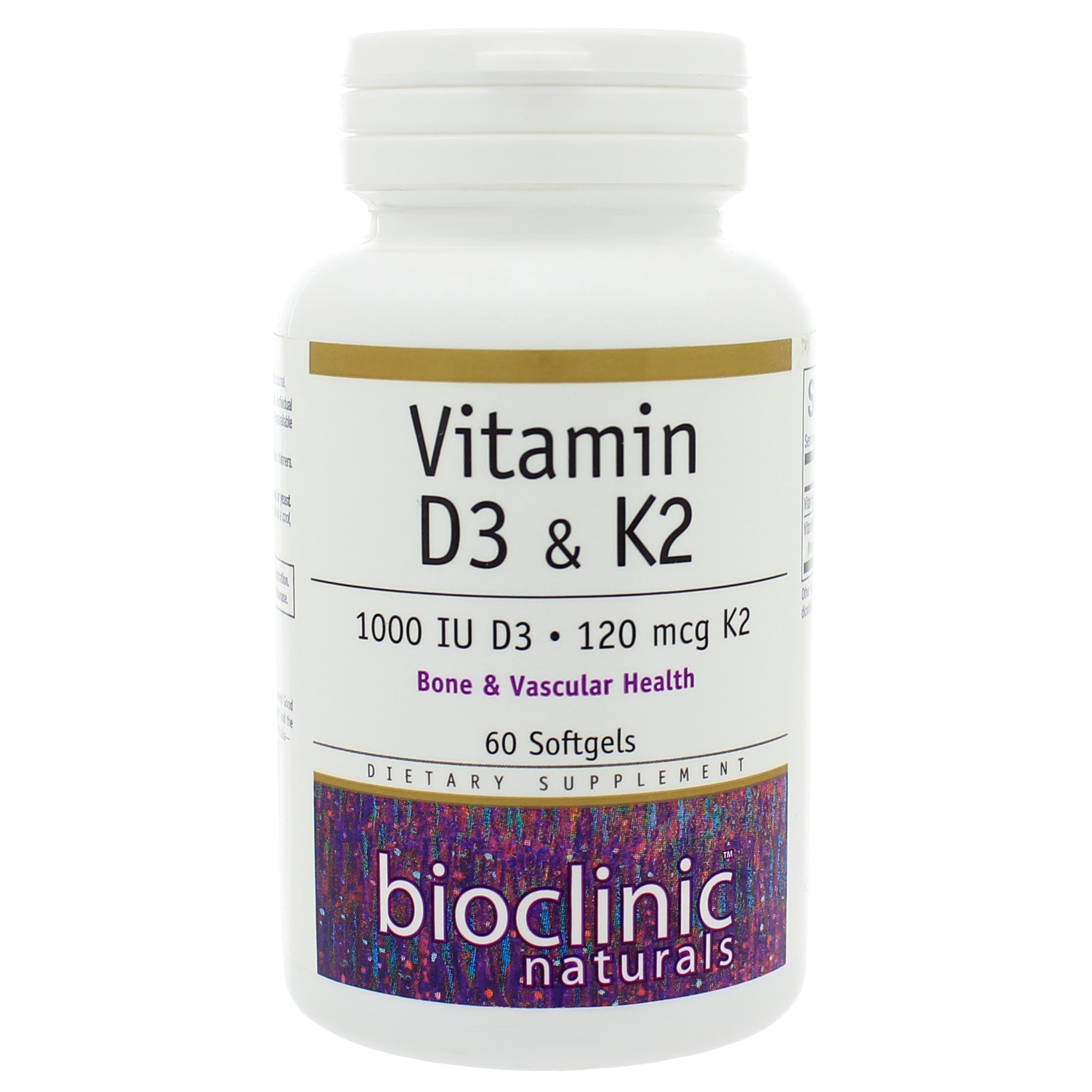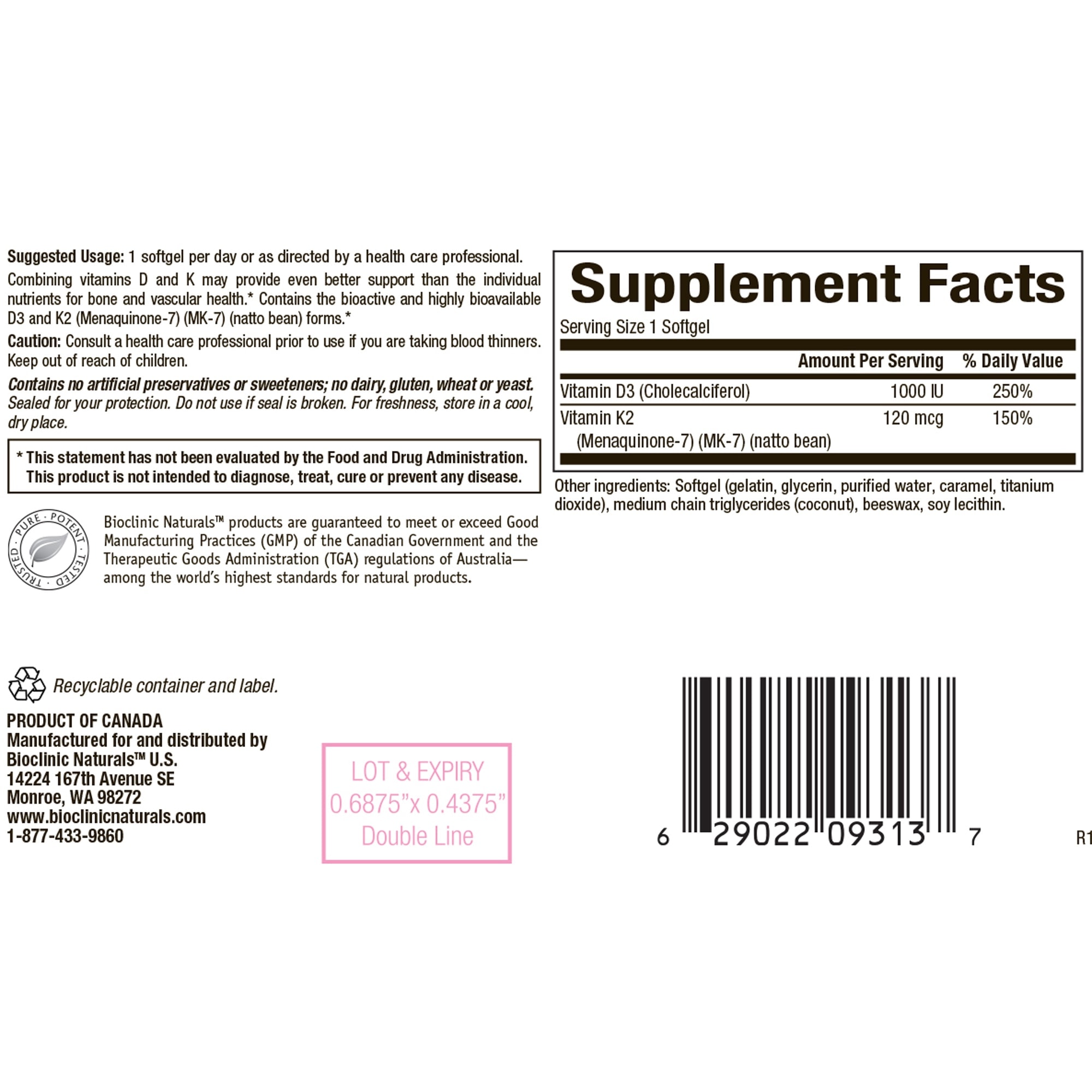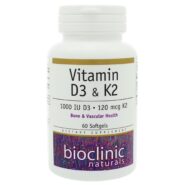Take 1 softgel per day or as directed by a health care professional.
Serving Size: 1 Softgel
Amount Per Serving
Vitamin D3 … 1000IU
(Cholecalciferol)
Vitamin K2 … 120mcg
(Menaquinone-7)(MK-7)(natto bean)
Other ingredients: Softgel (gelatin, glycerin, purified water, caramel, titanium dioxide), medium chain triglycerides (coconut), beeswax, soy lecithin.









Reviews
There are no reviews yet.